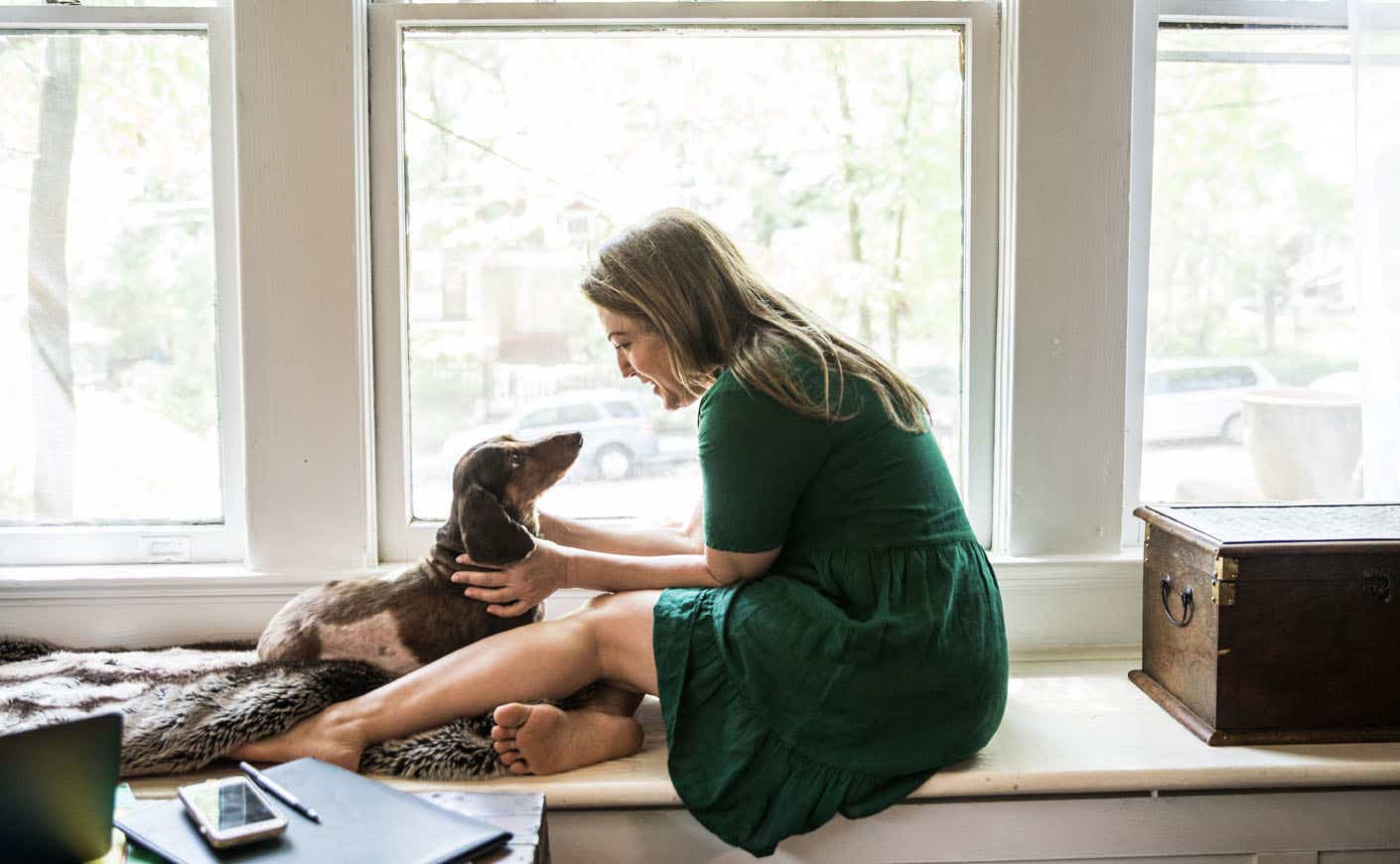They say that dogs are man’s best friend… but these days, it seems that the same goes for cats, birds and even fish. With the coronavirus forcing so many Americans to limit social interactions, people have been turning to pets of all kinds for much-needed companionship.
According to Lori Kogan, a professor at Colorado State University and chair of the Human-Animal Interaction Section of the American Psychological Association, pets can provide both physical and psychological benefits. “For a lot of people, having an entity to care for really gives them some purpose in life,” she says. “Having an animal that wants to be fed every single morning or wants to go for walks, it helps give people some structure and meaning.”
And Kogan isn’t just speculating. According to a survey done by her organization of pet owners’ reactions to Covid-19, pets were seen as an overwhelming supportive and positive force in their owners’ lives. According to Kogan, “people saw their pets as really helping with feelings of depression and isolation and anxiety.”
These positive psychological impacts may be most beneficial to two of the populations most impacted by the coronavirus: children and the elderly. According to animal rights activist Beth Stern, “for the elderly and for children, pets are a great way to combat feelings of loneliness and isolation. They provide unconditional love and help keep their owners to a routine which helps promote a feeling of increased normalcy. Pets also provide wonderful lessons in responsibility for children, as well as helping them with social and emotional learning.”

If you’re considering adopting a pet and have heard anecdotal reports that the pandemic has cleared out shelters, don’t worry. “Shelters are far from empty, sadly," Stern says. "Even though there’s been an increase in fostering and adopting across the country, shelters still have many homeless animals.” That said, there has been one group of pets that has really benefited from the uptick in adoptions in these last months: older animals. According to Stern, “people have opened their hearts and homes to older and special needs animals that are often overlooked.”
If you’re not necessarily ready for the commitment of a cat or dog, pets of a less snuggly variety can provide just as much fulfillment. As Kogan says, “even with birds, fish, and reptiles, it’s all about connection, and being able to focus your energy on taking care of something that really is quite dependent on you.”
Stern agrees: “Caring for any animal is rewarding. I have childhood memories of petting our goldfish and caring for hermit crabs, guinea pigs, and baby chickens… I loved them all and treated them all like family.”
Before you decide to run out and pick up a new puppy, make sure to consider the long term implications. “It is important to remember that adopting any animal is a 13 to 15 year commitment — some cats live up to 20 years!” says Stern. “They are part of your family and will provide unconditional love. People considering adoption should consider their life now and, possibly more importantly, what their lifestyle will be like when the pandemic ends.”
In partnership with North Shore Animal League, the largest no-kill animal rescue and adoption organization in the world, Stern has dedicated her life to saving animals, and she seems to get as much from them as she gives. “My pets are my joy,” she says. “ [My husband] Howard [Stern] and I don’t have human children together, so our pets are our kids. Having fostered over 1,300 cats and kittens — including a few dogs for LI Bulldog Rescue — I feel meaning and purpose in my life. I wake up each day knowing I am saving lives. It feels really nice.”









